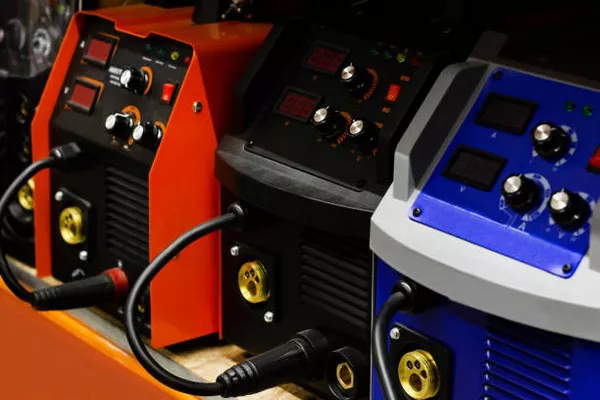In a world where energy demands are ever-increasing, ensuring a reliable power supply is crucial for various sectors, from industrial operations to emergency services. Among the myriad of power generation options, diesel generators have stood out for their reliability, efficiency, and versatility. This article delves into what diesel generators are, their components, working principles, applications, and benefits, painting a comprehensive picture of this indispensable technology.
What is a Diesel Generator?
A diesel generator (DG) is a combination of a diesel engine with an electric generator (often an alternator) to generate electrical energy. It is specifically designed to convert the chemical energy stored in diesel fuel into electrical power, which can be used in places where a reliable grid power source is not available or as a backup power supply in case of power outages. Diesel generators are widely used in industrial, commercial, and residential applications due to their robustness and ability to deliver power quickly and efficiently.
Components of a Diesel Generator
Diesel Engine: The core component that burns diesel fuel to produce mechanical energy. The engine’s size and power output can vary widely, depending on the generator’s intended use.
Alternator: This converts mechanical energy from the engine into electrical energy. It typically includes a rotor and stator to create an electromagnetic field that induces electricity.
Fuel System: Includes the fuel tank, fuel pump, and fuel injectors, which work together to deliver diesel to the engine.
Cooling System: As diesel engines generate significant heat, the cooling system ensures the engine operates at an optimal temperature, typically using a radiator and coolant.
Exhaust System: Removes and treats exhaust gases produced by the combustion process to minimize environmental impact.
Lubrication System: Keeps engine components well-lubricated to reduce friction and wear.
Battery and Starting System: Provides the initial power to start the diesel engine.
Control Panel: Houses controls and monitoring equipment to manage generator operation, including start/stop functions, output regulation, and fault diagnostics.
Working Principle of Diesel Generators
The operation of a diesel generator can be summarized in a series of stages:
Air Intake and Compression: Air is drawn into the engine and compressed by the pistons. This compression significantly increases the air’s temperature.
Fuel Injection: Diesel fuel is injected into the combustion chamber at high pressure. The heat from the compressed air ignites the fuel, causing a controlled explosion.
Power Stroke: The explosion forces the piston down, converting the chemical energy of the fuel into mechanical energy.
Exhaust Stroke: Exhaust gases are expelled from the engine, making way for the next intake of air.
Mechanical to Electrical Conversion: The mechanical energy generated by the moving pistons is transferred to the alternator, which then converts it into electrical energy.
Applications of Diesel Generators
Diesel generators are employed across various sectors due to their versatility and reliability:
Industrial Sector: Factories, mining operations, and construction sites often use diesel generators for their power needs, especially in remote areas without reliable grid access.
Commercial Buildings: Hospitals, data centers, and office buildings use diesel generators as backup power sources to ensure critical operations continue during power outages.
Residential Use: In areas prone to frequent power outages, homeowners use smaller diesel generators to keep essential appliances running.
Emergency Services: Fire stations, police departments, and emergency response units rely on diesel generators to maintain operations during crises.
Telecommunications: Cell towers and communication hubs use diesel generators to ensure continuous service, particularly in remote locations.
Agriculture: Farms and agricultural operations use generators to power equipment and irrigation systems, especially in regions lacking reliable electricity supply.
Benefits of Diesel Generators
Reliability: Diesel generators are renowned for their durability and ability to provide consistent power over extended periods.
Fuel Efficiency: Diesel engines are more fuel-efficient than their gasoline counterparts, translating to lower operating costs.
Long Lifespan: With proper maintenance, diesel generators can operate efficiently for many years, making them a cost-effective investment.
High Power Output: Diesel generators can produce significant amounts of power, suitable for large-scale industrial applications.
Quick Start-up: Diesel generators can start up quickly, providing power almost immediately in emergency situations.
Low Maintenance: Diesel engines require less frequent maintenance compared to other types of engines, thanks to their robustness and fewer moving parts.
Versatility: Available in various sizes and configurations, diesel generators can be tailored to meet specific power needs.
Environmental Considerations
While diesel generators offer numerous benefits, they also pose environmental challenges, primarily due to the emission of pollutants such as nitrogen oxides (NOx) and particulate matter. To mitigate these impacts, modern diesel generators are equipped with advanced emission control technologies like catalytic converters and particulate filters. Additionally, using low-sulfur diesel fuel can further reduce harmful emissions.
Innovations and Future Trends
The diesel generator industry is continually evolving, driven by advancements in technology and increasing environmental regulations. Key trends include:
Hybrid Systems: Combining diesel generators with renewable energy sources like solar or wind to create hybrid power systems that reduce fuel consumption and emissions.
Smart Generators: Integration with IoT and smart grid technologies to enhance monitoring, control, and efficiency.
Enhanced Emission Controls: Development of more effective emission control systems to meet stringent environmental standards.
Alternative Fuels: Exploration of biodiesel and other alternative fuels to further reduce the environmental impact of diesel generators.
See Also HOW HAND CRANK GENERATORS WORK
Conclusion
Diesel generators have been a cornerstone of reliable power generation for decades, offering unmatched reliability, efficiency, and versatility. From powering critical infrastructure to providing backup power in emergencies, their importance cannot be overstated. While environmental concerns remain a challenge, ongoing innovations promise to make diesel generators cleaner and more sustainable. As technology advances, diesel generators will continue to play a vital role in meeting the world’s diverse and demanding energy needs.

